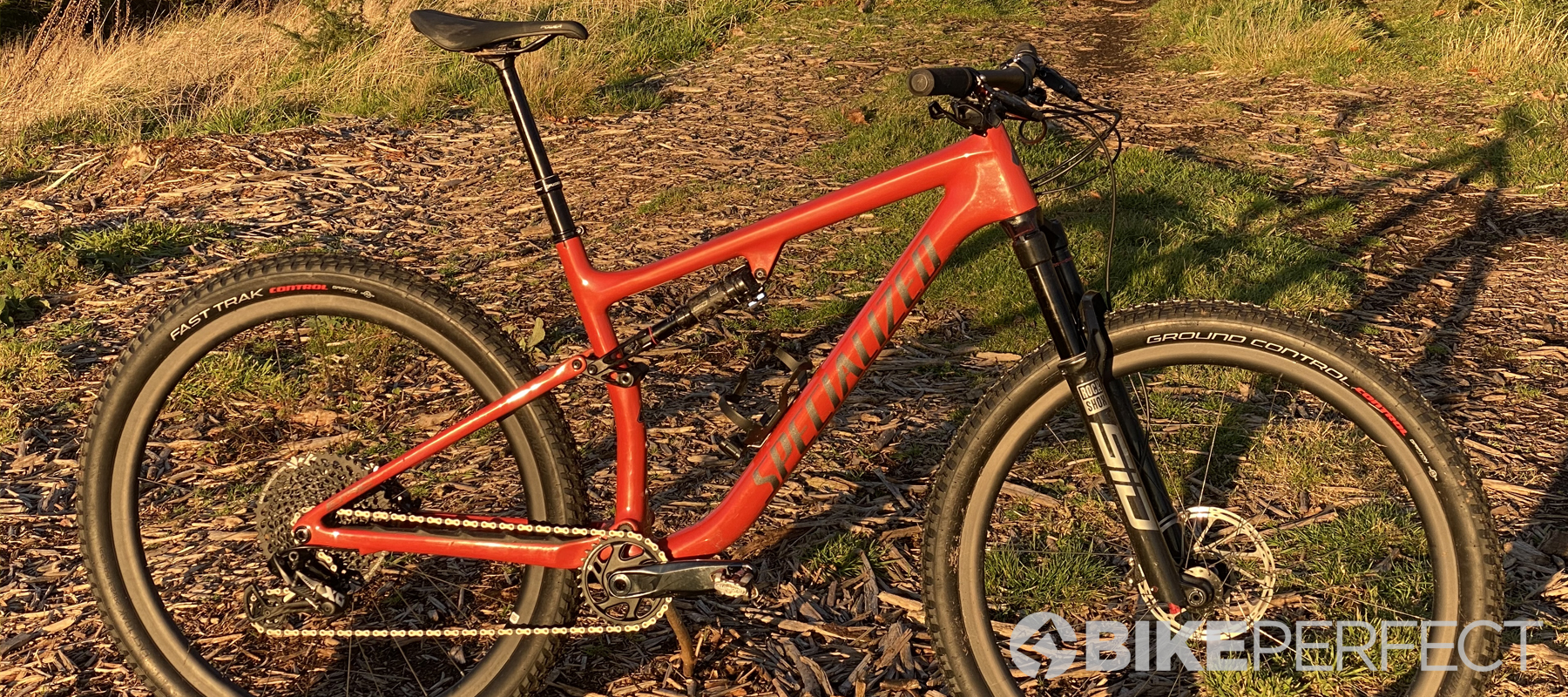Bike Perfect Verdict
Lighter, stiffer and slacker to be faster uphill and down, the new Epic Evo is a blisteringly quick and enjoyable XC/trail bike. Long seat tube and top tube clearance are potential issues though and the Comp model is even better value.
Pros
- +
Superlight frame weight
- +
Impressive stiffness
- +
Excellent SID suspension combo
- +
Great suspension tune
- +
Confident steering
- +
Smart kit choice
Cons
- -
Tall seat tube limits upsizing
- -
Controls hit the top tube
- -
Slow freehub engagement
- -
Comp version is even better value
- -
No SWAT downtube storage
Why trust BikePerfect
When Specialized launched its new Epic race bike for the Olympics that never happened it dropped a trail-focused Evo version at the same time. If you’re okay with a moderate reach this mix of super-light XC speed with trail-ready geometry and componentry is an absolute blast for flat out predatory play and tougher, longer races.
Design and geometry
The carbon mainframe is shared with the Epic race bike, but by adding a 120mm stroke fork, the head angle is tipped back to a stable and confident 66.5-degrees. Bringing the nose up also reduces the reach by 10mm but 460mm on a large is still relatively long for an XC bike. The suspension system is the same as the Epic, using an under the top tube shock position, with a direct mount driver link and small rocker link on the seat tube connecting to a flex stay rear end. The main pivot position that's level with the chain and directly over the BB axle is the same, too. What’s different is there’s no Brain shock sensing inertia valve chamber behind the rear axle and no pipe joining that to the rear shock. Even though the current Brain is the neatest and lightest version that Specialized has made in nearly twenty years of Epic development, that still adds 200g compared to the non Brain Evo.
That means the Evo is the lightest full-suspension frame Specialized has ever made and at 1659g with shock and other hardware for the FACT 12m carbon S-Works version it’s one of the lightest XC frames anyone has ever made. You can only buy the S-Works as a frame in the UK though and the bike we’re testing here (and the entry-level Epic Evo Comp) uses a more affordable FACT 11m carbon composite and a carbon - not alloy - shock link. That still only adds 98g of weight though so it’s still a very light frame. Every frame size gets a different composite lay-up schedule to reflect the likely rider weight so that lighter riders get the same vibe as heavier ones.
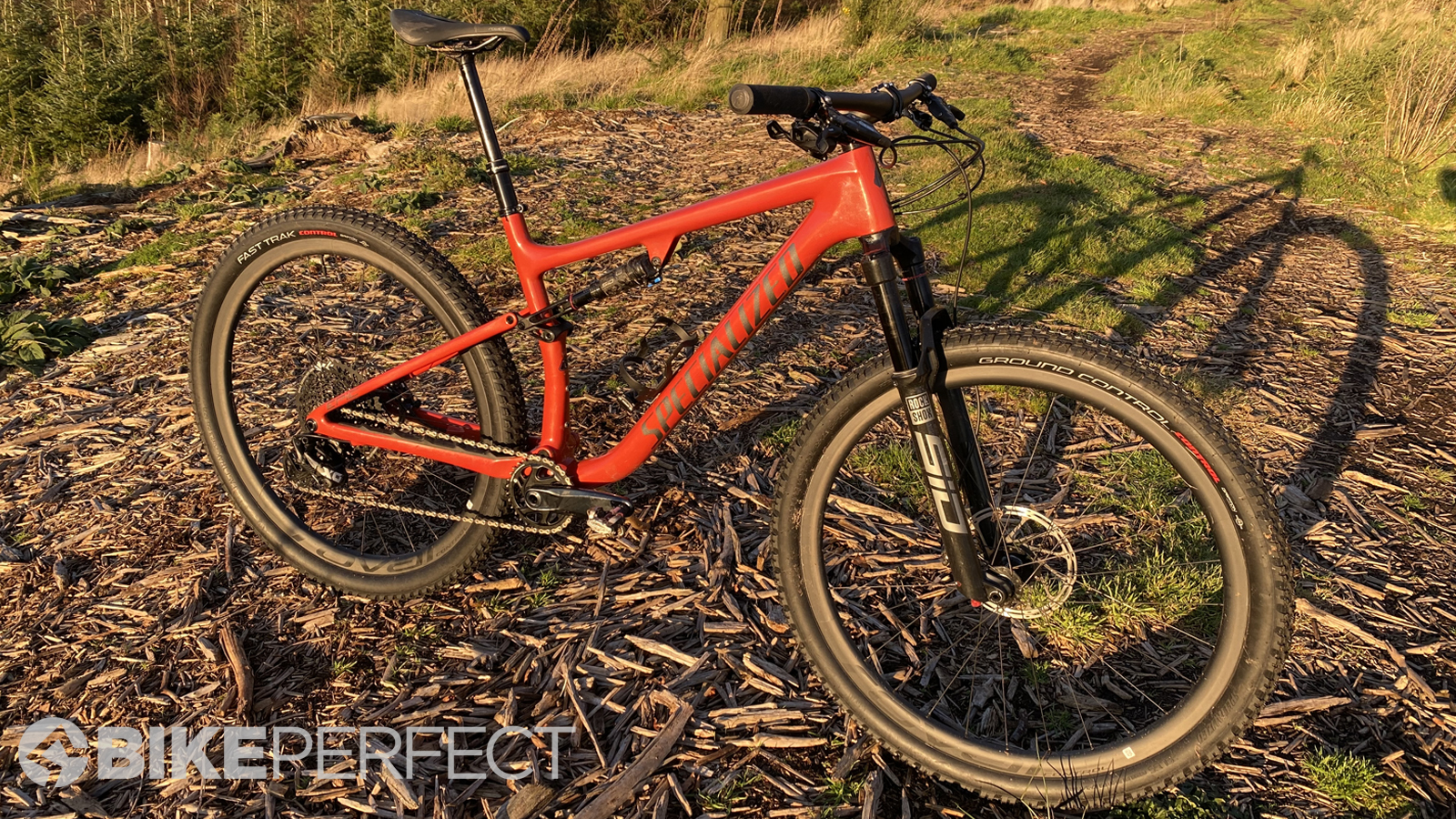
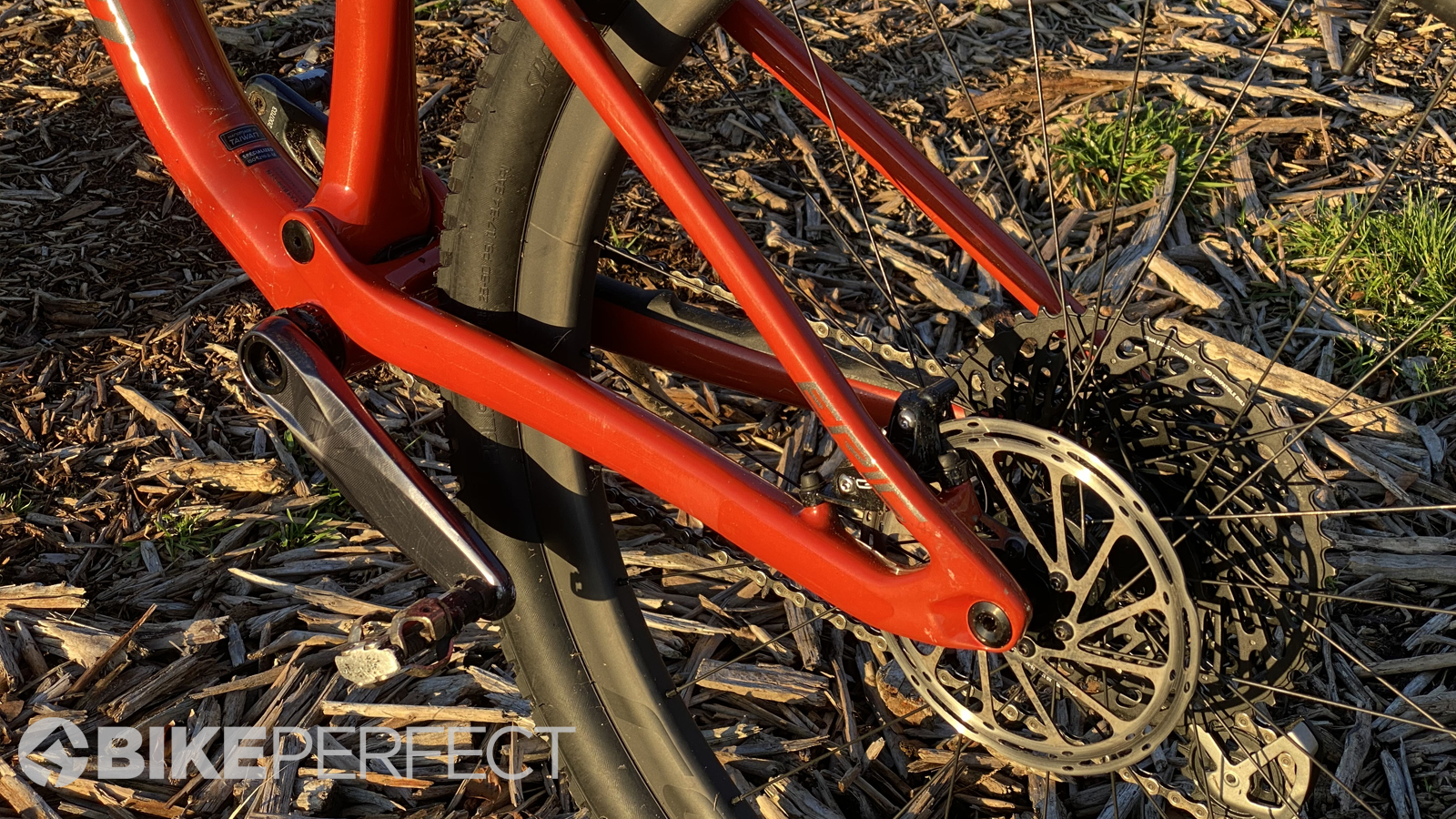
Specialized hasn’t skimped on practicality either. The bottom bracket is threaded for easy removal and replacement, there’s chunky anti-chain slap protection on the chainstay and even a rubber rock skirt behind the main pivot. Cabling is fully internal with rubber insert grommets on the head tube offside. The rear mech hangs off SRAM’s new UDH (Universal Derailleur Hanger) for easy spares sourcing and there’s room for a seat tube bottle as well as upper and lower downtube bottle mounts on all but the small size frame. The superlight, super-thin tube walls mean there’s no SWAT internal storage but you do get a small ‘EMT’ Allen key tool that slides into a holster on the back of the included bottle cage.
Despite the slackened angles, the seat tube is still at 74.5-degrees and the BB height is 335mm with a chainstay length of 438mm. If you want to go half a degree steeper and 6mm taller there’s a flippable chip on the shock mount which literally takes a couple of minutes to switch.
There’s still enough tire clearance for a dirty and/or knobbly 2.4in rear tire, too.
The only major frustration is that the very tall seat tube - the large has a 470mm height whereas an S4 (effectively large) 130mm travel Stumpjumper has a 425mm tube length - makes it awkward to size up to gain extra reach (XL has a 480mm reach) without cutting significantly into useful seatpost stroke (XL has a 520mm seat tube).
- Best trail bike: the best trail mountain bikes reviewed and rated
- Best MTB GPS computers: the best GPS computers for mountain biking
Components and build
While the frame is totally new, the component selection has only changed slightly from last year's Epic Evo but it was already a good balance of enhanced control while adding as little weight as possible.
First up Specialized deserves credit for fully committing to a trail style with the suspension control. Rather than going from Brain ‘auto lockout’ to a remote control lockout set up as you might expect, Specialized have gone straight to manual. You get a low-speed compression lever on top of the fork’s Charger damper, while the rear shock just has a two-position - essentially on and off - compression lever. That might not agree with everyone, but it keeps things very light. Specialized has also worked with RockShox to put a slightly firmer tune into both the SID Select+ front fork and the SID Luxe Select+ rear shock which gets an ‘RX XC’ tag as a result. The fork is also the 35mm legged, 120mm travel version, not the 32mm legged 100mm version of the pure race bike, but it’s still a lot lighter than the Fox 34 of last year’s bike.
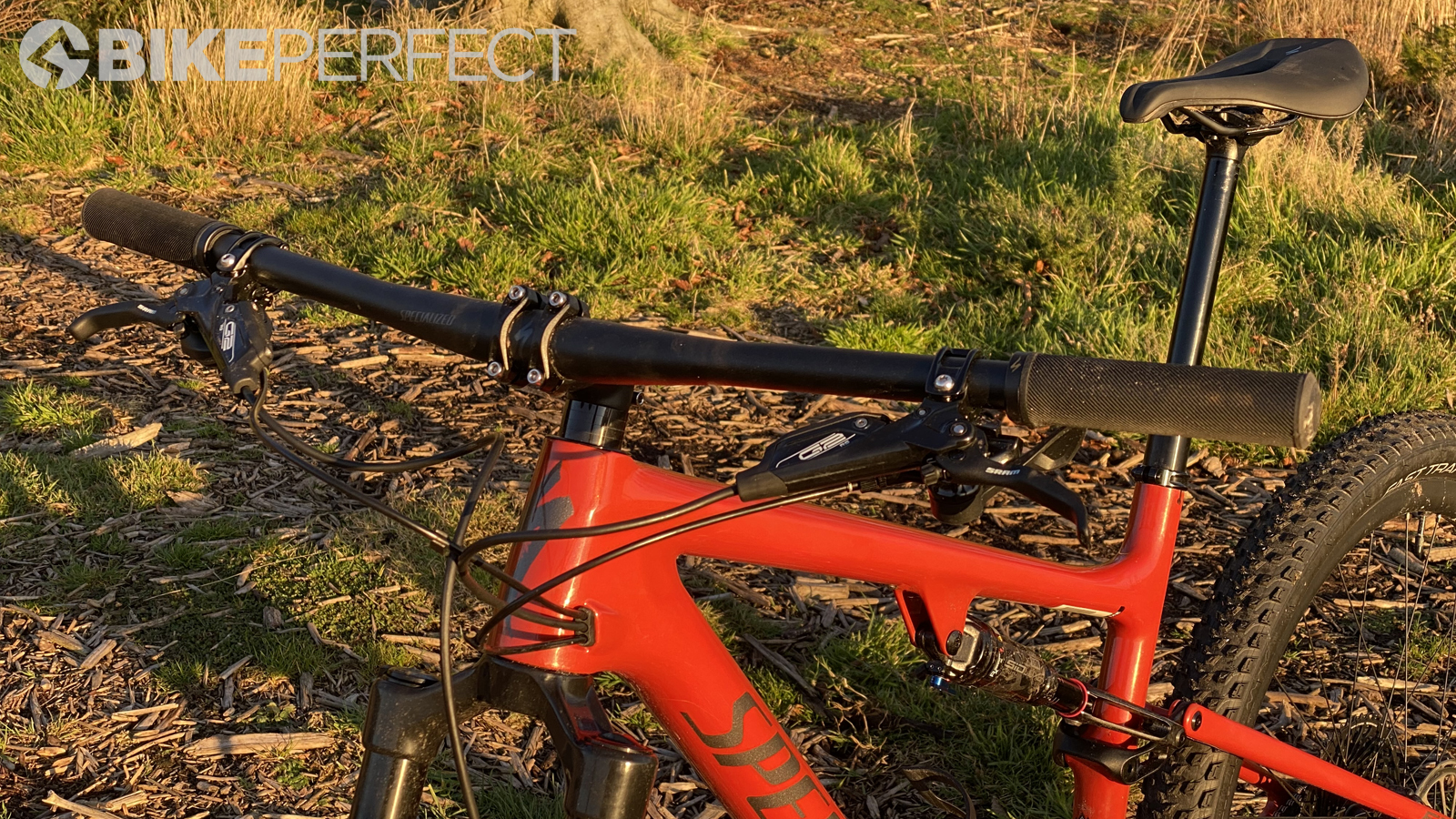
A 750mm flat bar sits on top of the fork with a mid-length 60mm stem and you get G2 four-pot brakes not the lighter but less powerful Level brakes. You sit on an X-Fusion dropper post (125mm stroke on smaller bikes but a trail length of 150mm on the larger sizes). The short-nose Power Sport saddle is a great place to lay the power and traction down from, too.
With such a light bike we’d argue that a 34T chainring would be more suitable for the amount of speed it can easily generate. You’ll be going some before you spin out a 32x10 top though and the 32x50 will be gratefully received by most mortals when they’re hours into some evil marathon event. There’s definitely significant weight to be saved by switching out the carbon crank in the future too. You get carbon-rimmed wheels as standard though with a 23mm internal width that suits the 2.3in tires fine. A switch to the Control (previous bikes had reinforced GRID) casing version of the Fast Trak semi-slick at the rear brightens up acceleration. The DT Swiss 350 hubs are still slow to engage but they get the legendarily reliable Star Ratchet freehub mechanism, rather than the conventional three-pawl guts of the 370 hubs on last year’s bike. The valves to turn the wheels tubeless are included too and Specialized also includes a bottle cage with its EMT mini tool clipped onto the back as a nod towards bag-free SWAT riding.
The result is that while the price goes up by £1500 compared to last year's Epic Evo Expert Carbon, each of those pounds buys you very nearly a gram of saved weight. That makes it remarkably competitive with some fully race-focused, carbon everything bikes with a much bigger price tag. The Epic Evo Comp gets the same frame and almost identical spec apart from SLX gears and alloy wheels with skin wall tires for £4500 too making it an absolute winner.
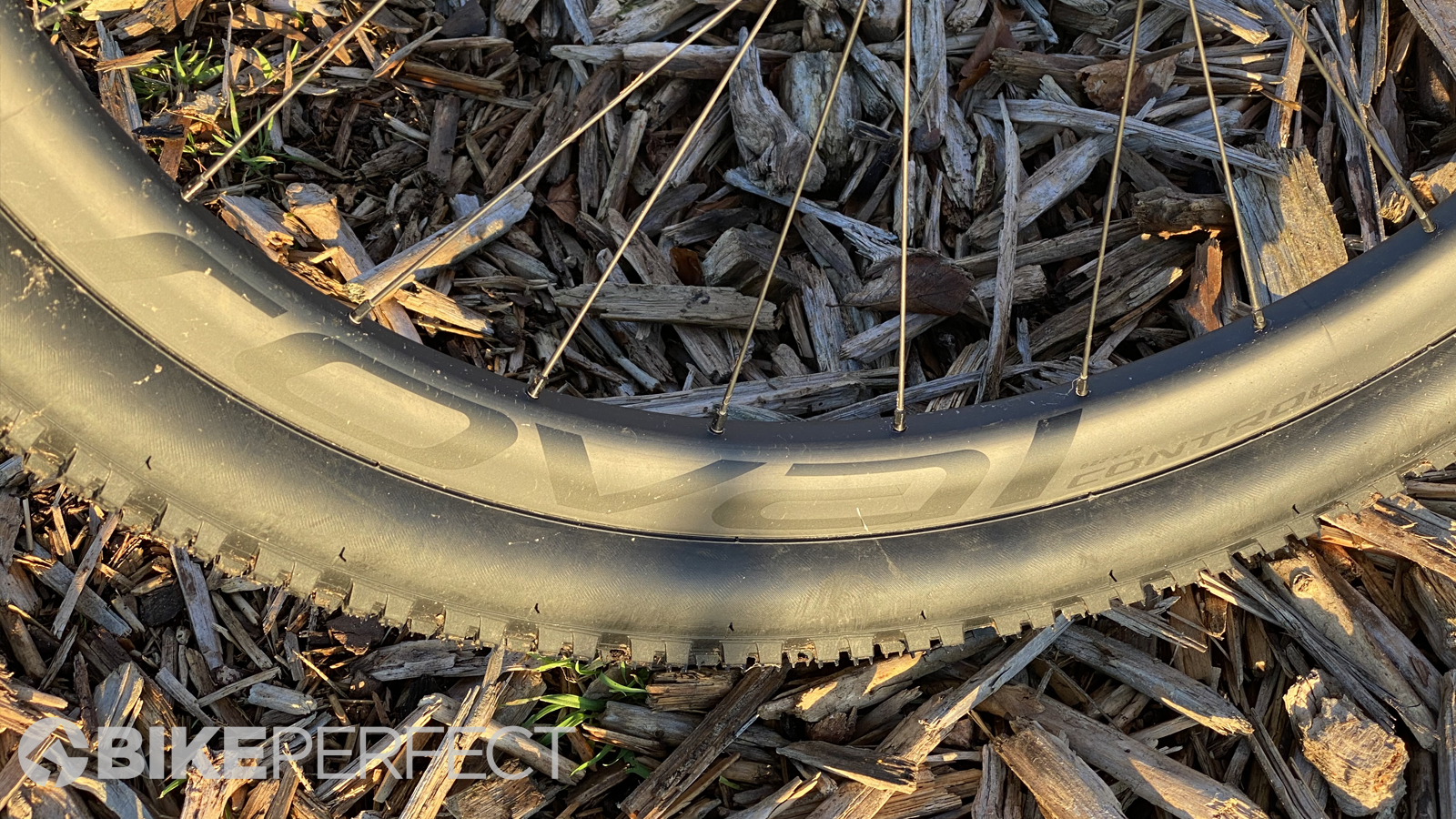
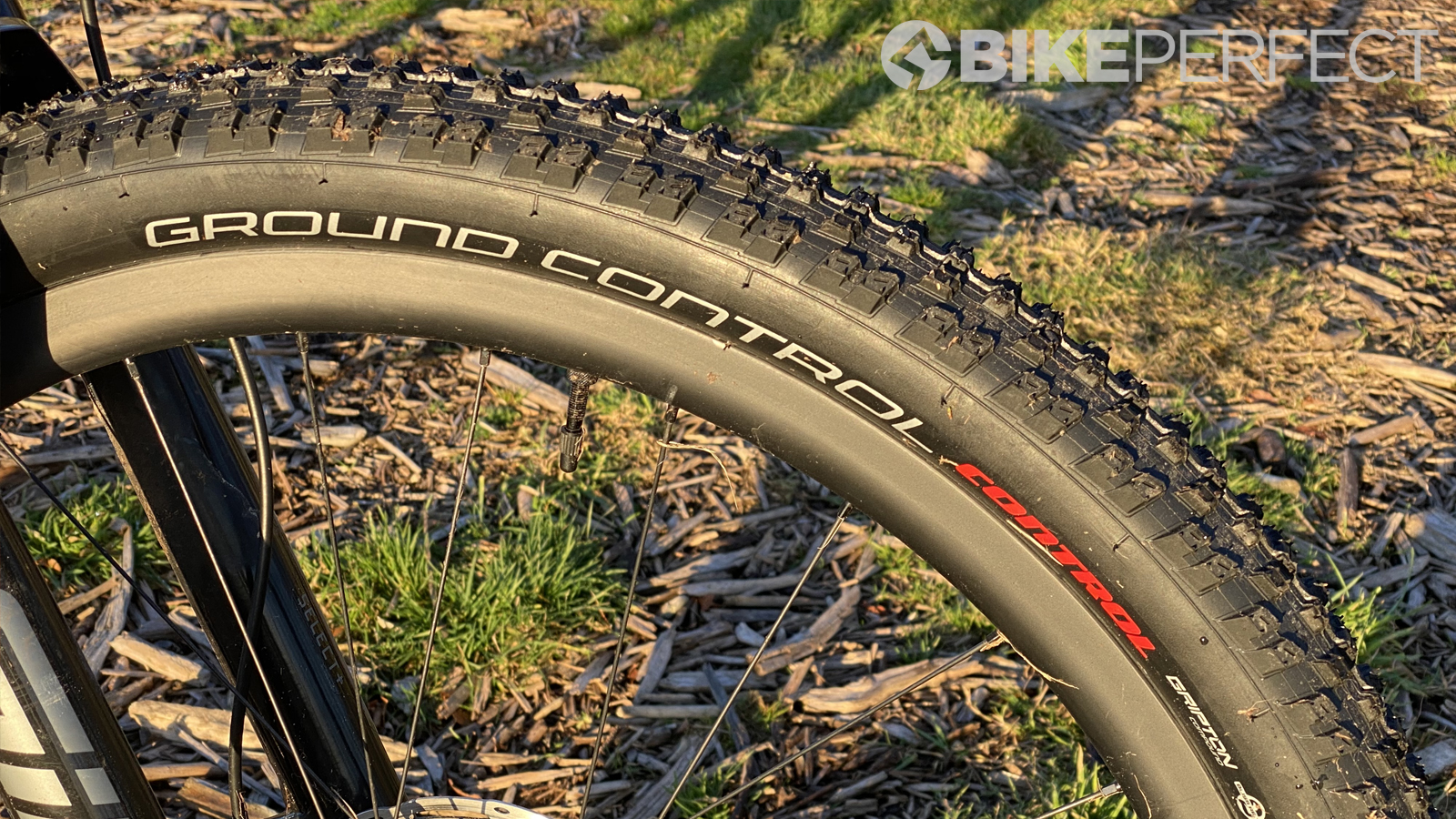
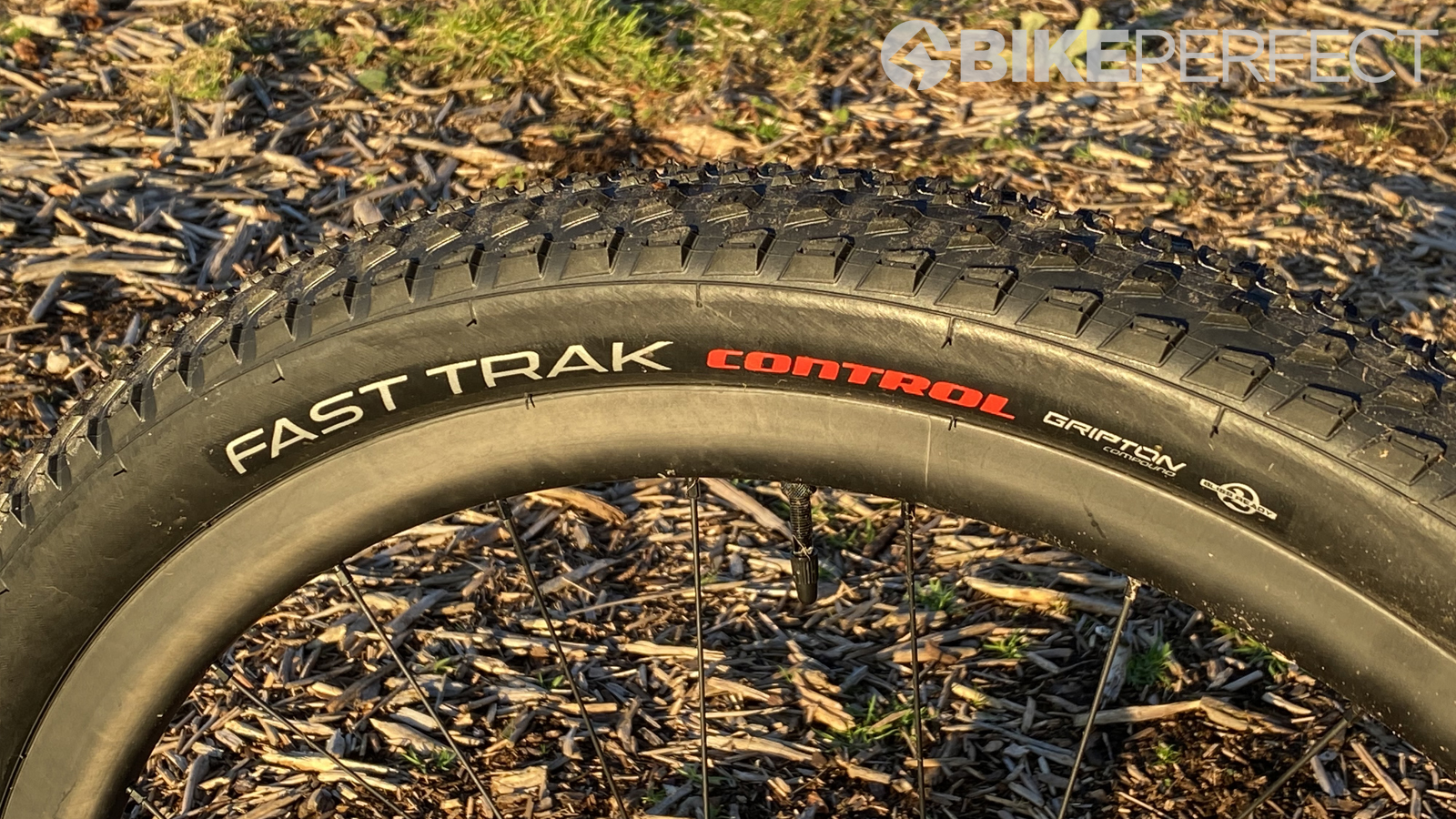
- Best XC forks: the best cross country forks you can buy today
- Best mountain bike tires: all the top mountain bike tires reviewed
Ride, handling and performance
The overriding impression of the previous Epic Evo was a bike where the potential of the trail componentry was being held back by its geometry, frame stiffness and the Brain shock. Despite being 1.5kg lighter, the new bike is obviously, immediately and very welcomely tighter through the turns, carving across off-camber sections and when you’re wrenching on the bars trying to get every last watt of power into the trail. Interestingly ridden back to back with the longer, but heavier (700g) framed Stumpjumper with Fox 34 fork the Epic Evo consistently felt the sharper, more precise bike.
The suspension is on point for making the most of the precision too. The SID is a seriously precise fork for its weight so more than up to pushing the slack head angle as hard as the medium grip front tire will allow. While Specialized always likes to keep their baseline kinematic pretty neutral, the SID Luxe rear shock tune creates a tight, efficient feel to the bike. That meant that while we actually started off the shock at 20% sag (because it’s generally what we do with A/ race bikes and B/ neutral four-bar bikes to make them feel sporty) we soon dropped to 30% sag to get the right progression.
As long as you’re an average weight, the default spring rate and damper tune is spot on from the box too, with only a slight tweak of the rebound needed before we just got on with thrashing the bike up, down and along as many trails as we could. It is worth noting that the rebound on the rear shock uses a hex key dial rather than an external knob though and it’s not a size that’s on the EMT tool, so you’ll need to take an extra for tweaking until you’re happy.
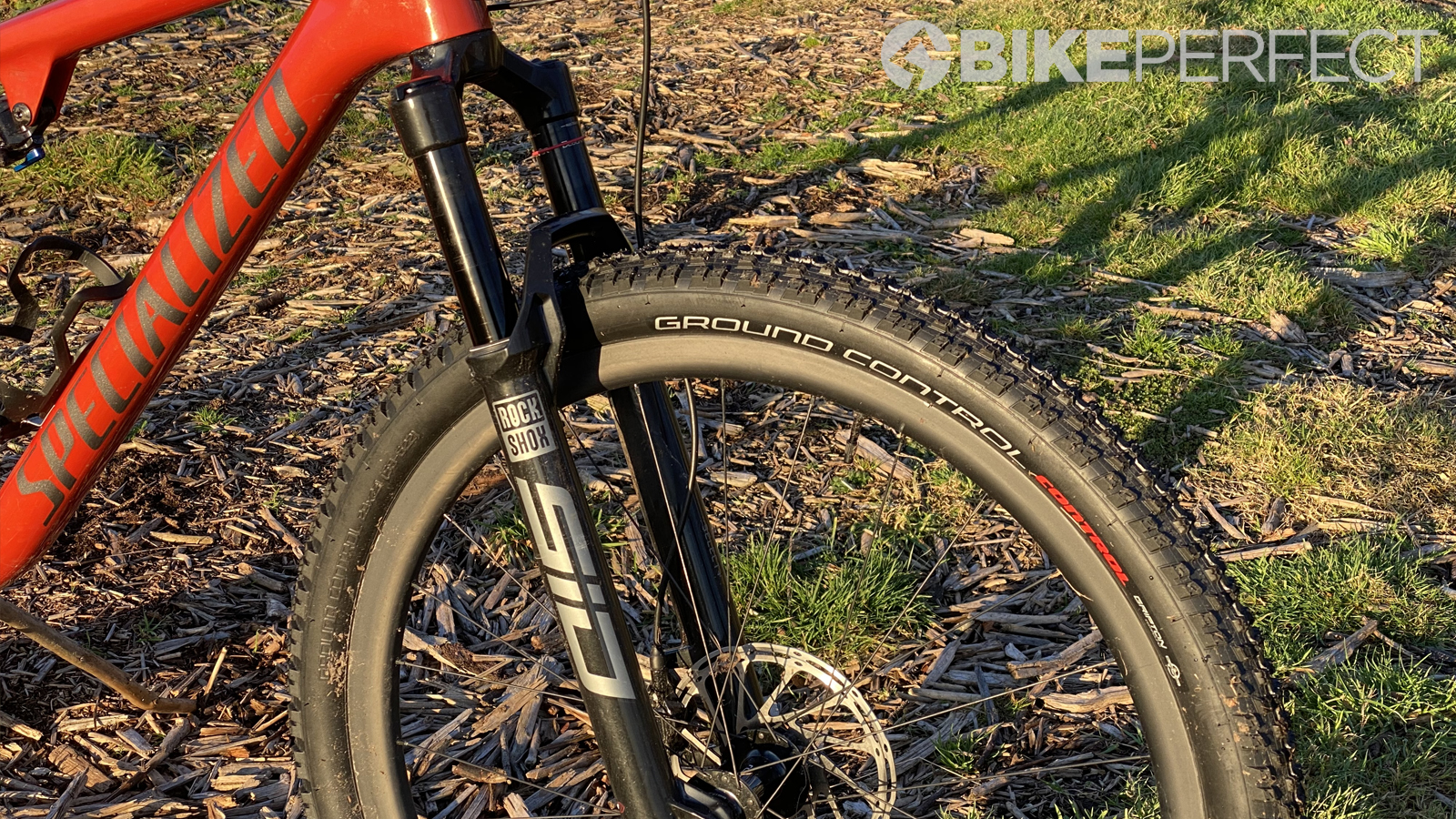
Interestingly the stiffer frame and firmer, fixed tune still means the rear wheel actually clatters and hangs up slightly more through extended rough sections than the old, ‘compliant’ chassis Epic Evo if you ran it with minimal ‘Brain fade’. Obviously, there are none of the clunks as it toggles an inertia valve on and off though. In contrast, what’s particularly pleasing from a trail-traction and long day fatigue point of view is that both ends still have a top note of smooth ‘bubbling’ responsiveness that really boosts connectivity and a playful feel.
It’s that rare combination of seriously low weight, precision and playfulness that characterizes every ride we took the Epic on as well. Whether it was twisting the knife on tempo climbs, punching up technical steeps, blasting out of every corner on swerving singletrack without having to grab the brakes into the next turn or just flat out hunting full fat trail bikes, the Epic Evo is just flat out fun. Even if you’re heading out for a marathon mission and rationing your effort, you’ll still get more speed for each watt than most bikes and the handling and suspension control to keep you safe when you’re wired at the end of the day.
While the length will feel generous for those coming off an older XC bike it is shorter than the cutting edge bikes in this category like the Mondraker F-Podium, NS Synonym and Transition Spur. That does make it feel less stable at speed or in steeper sections, although the tracking accuracy is noticeably better. What’s slightly frustrating is that if they’d given it a shorter seat tube then it would have been easy just to upsize on the frame and get that reach as well as the extra stiffness. Then again Specialized would probably suggest that riders wanting a more progressive trail feel should look at the new lightened and shortened travel Stumpjumper.
There’s also another clearance issue in that the short head tube and flat bar mean that even with all the headset spacers still under the stem the shifter or dropper lever will hit the top tube if you jackknife in a crash. A new bar will obviously lift the riding position, too, so it won’t feel as predatory when you’re on the rivet which would be a shame on such a born hunter.
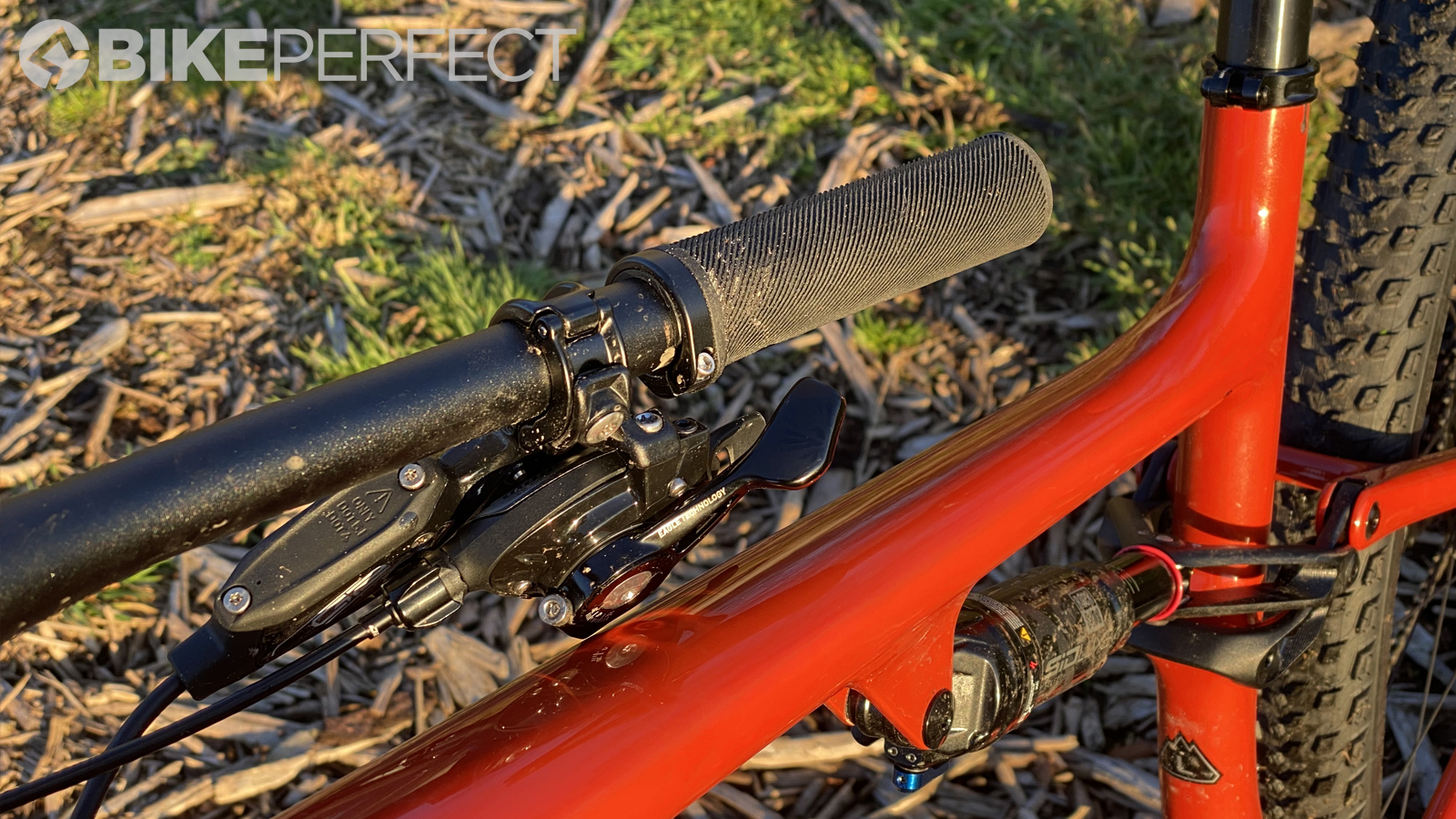
Verdict
Extremely light for its powerfully, aggressive performance and a lot more confidence in dealing with the speed it so easily generates, the Epic Evo is a standout bike at the racier end of the ever-growing ‘downcountry’ category. It’s easily light enough to be competitive on increasingly technical XC circuits, too. More than that it’s ready to go right away with a really well-chosen spec and suspension set up that’s ideal for its intended use. The Comp version represents an even better value too (we’d likely give that a 5 score). The medium reach won’t be an issue for most riders it’ll appeal too either, but if it were easier to get extra reach, we’d be doing everything we could not to send this bike back to Specialized.
- Best mountain bike helmets: the best MTB helmets from XC, trail to enduro
- Best mountain bike shoes: how to choose the best MTB shoes for you
Tech Specs: Specialized Epic Evo Expert
- Discipline: XC/Trail
- Price: £6750
- Head angle: 66.5-degrees
- Seat angle: 74.5-degrees
- Frame material: FACT 11m
- Size: Large
- Weight: 11.14kg
- Wheel size: 29-inch
- Suspension (front/rear): RockShox SID Select+ 120mm travel, 44mm offset/RockShox SID Luxe Select+ Rx XC tune 120mm travel.
- Components: SRAM X01 Eagle 10-50T 12-speed gearing and shifter. SRAM X1 32T chainset. SRAM G2 RS brakes with 180/160mm rotors. Specialized Ground Control and Fast Trak 29 x 2.3in tires on Roval Control Carbon 25mm rims, with 28 DT Swiss Competition spokes and DT Swiss 350 hubs. Specialized Minirise 750mm bar and 55mm stem, X-Fusion Manic 150mm dropper post, Specialized Body Geometry Power Sport saddle
Test conditions
- Temperature: 8-18 degrees.
- Surface: Moorland and woodland natural trails, man-made blue and red grade trails.
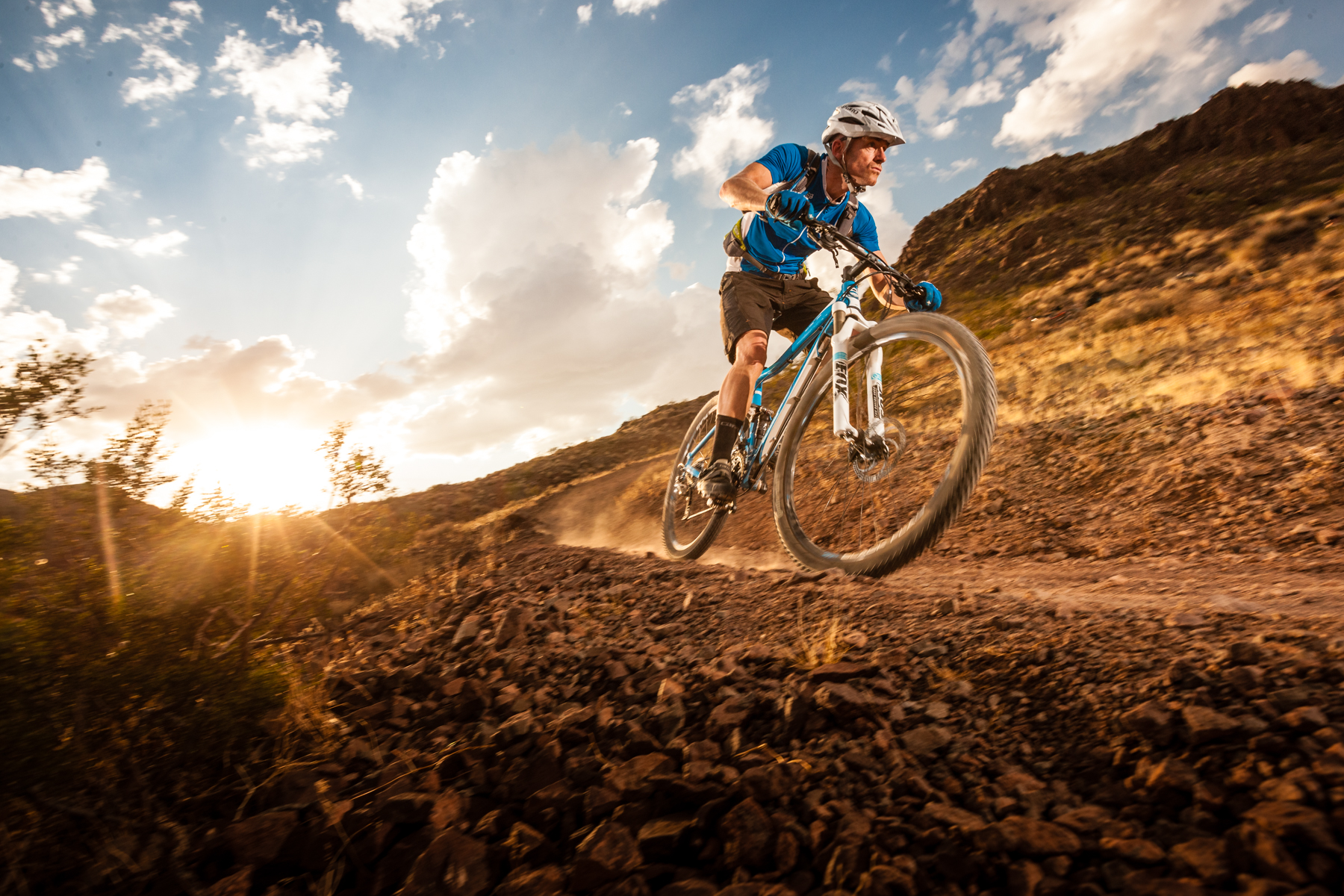
Guy Kesteven has been working on Bike Perfect since its launch in 2019. He started writing and testing for bike mags in 1996. Since then he’s written several million words about several thousand test bikes and a ridiculous amount of riding gear. He’s also penned a handful of bike-related books and he reviews MTBs over on YouTube.
Current rides: Cervelo ZFS-5, Specialized Chisel, custom Nicolai enduro tandem, Landescape/Swallow custom gravel tandem
Height: 180cm
Weight: 69kg
